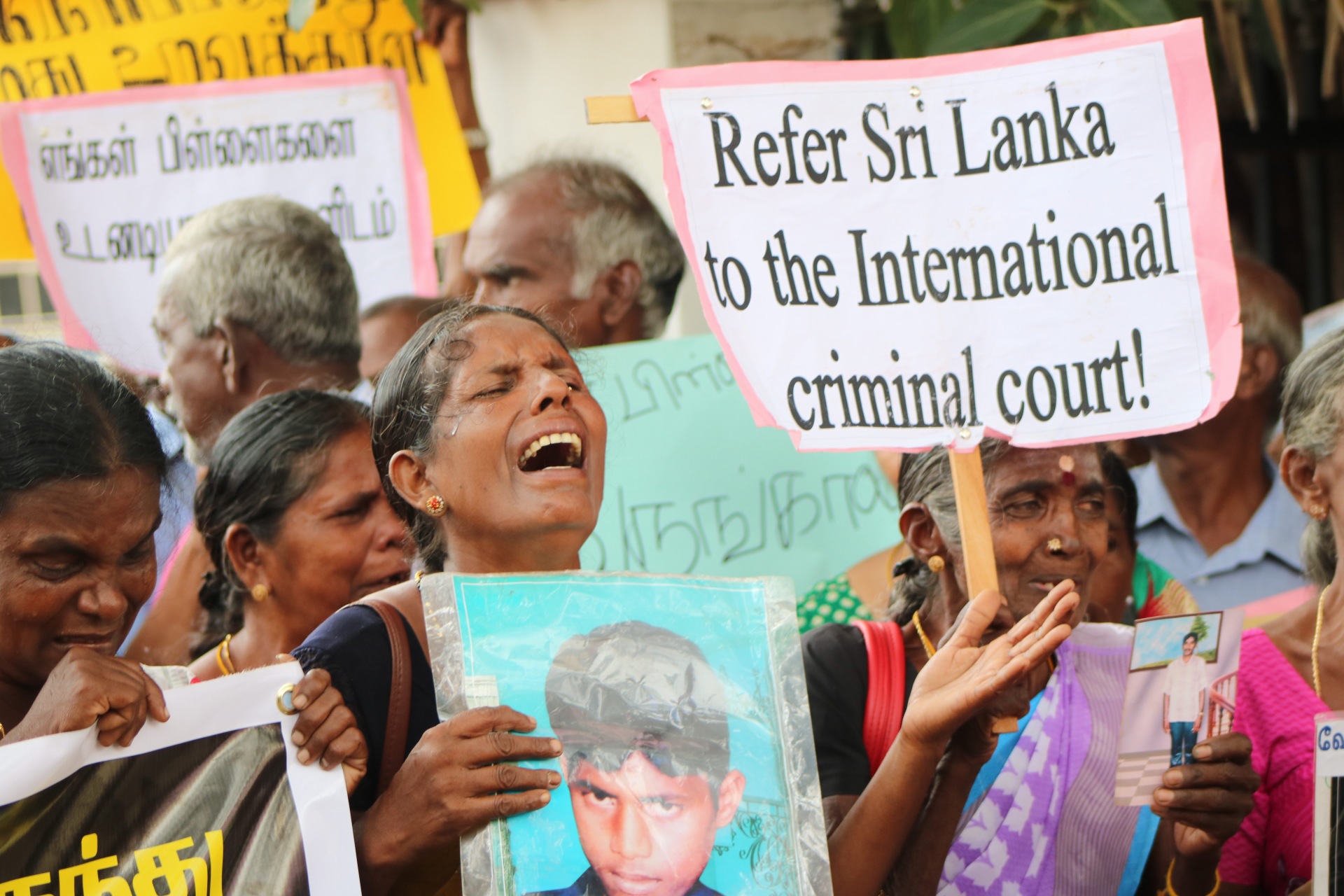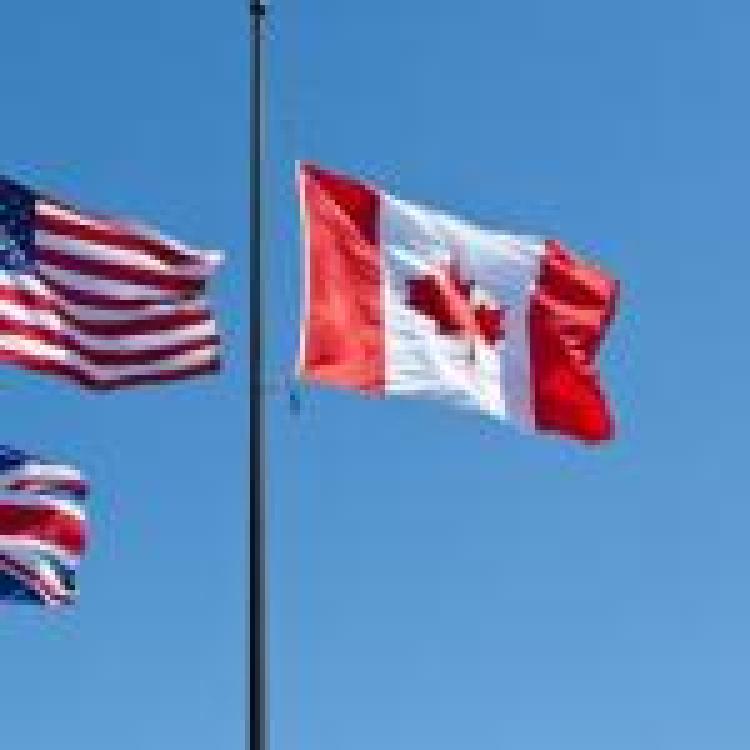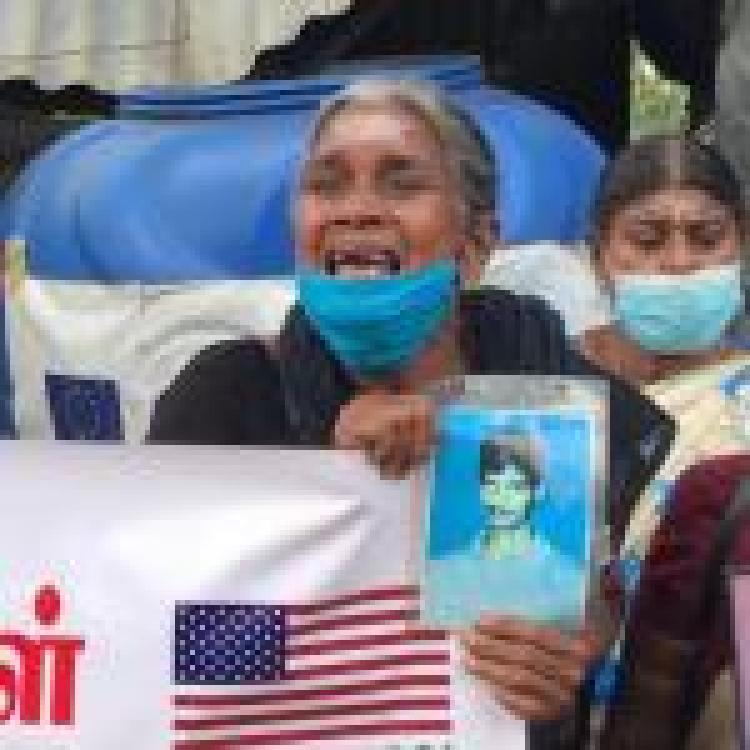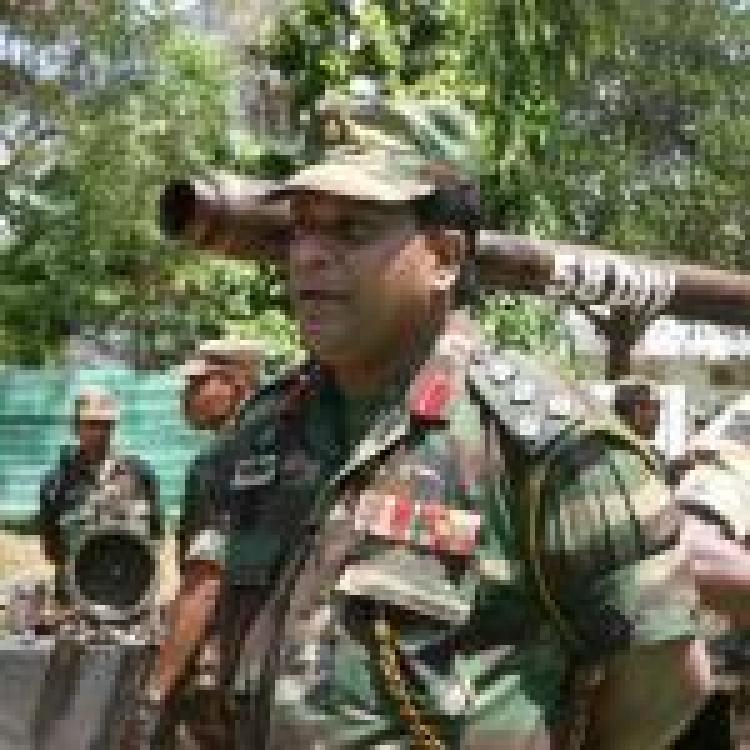
Demonstration by Tamil families last year,
Tamil Families of the Disappeared (FOD) urged the UK to refer Sri Lanka to the International Criminal Court (ICC) in a letter to UK Foreign Secretary Dominic Raab last Friday, ahead of the 46th UN Human Rights Council (UNHRC) session in Geneva in March.
“Since you are a member of the Sri Lanka Core-Group at the UN Human Rights Council, we from the families of the disappeared are writing ahead of the 46th session of the Council, to respectfully appeal to you to include in your Sri Lanka Resolution, to Refer Sri Lanka to the International Criminal Court (ICC).”
Michelle Bachelet, the United Nation’s High Commissioner for Human Rights (OHCHR) urged UN Human Rights Council Member States to take steps towards the referral of the situation in Sri Lanka to the ICC in her report released last week.
Writing to Dominic Raab, the FOD stated “We specifically urge you this request after losing any hope to get justice for our disappeared relatives including our disappeared babies and children”.
Sri Lanka has the second-highest number of enforced disappearances in the world, with around 60,000 and 100,000 unaccounted disappearances since the 1980s, according to last year’s report by the United Nations Working Group on Enforced or Involuntary Disappearances. Thousands of people, mostly ethnic Tamils, were forcibly disappeared between 2005 and 2015 in state custody, when current president was defence secretary and his brother, current Prime Minister Mahinda Rajapaksa, was president.
79 parents of the disappeared have passed away without knowing the fate of their loved ones, since the FOD began their protest.
The history of false promises and evasion of UNHRC accountability processes by the Sri Lankan government were highlighted by the FOD, with the failure of successive Sri Lankan governments to employ any of the several UNHRC Resolutions including those they willingly co-sponsored, and the current government officially withdrawing from the co-sponsorship of the Resolutions 30/1, 34/1 and 40/1.
Impunity of members of the armed forces in Sri Lanka was also emphasized in the letter, with reference to the Presidential pardon of Sunil Rathnayake, the “only soldier who was ever punished and sentenced to death for killing civilians including children” as well as the promotion of senior military officials accused of committing war crimes, such as the promotion to four-star General of Sri Lankan army commander and accused war criminal Shavendra Silva, who is banned from entering the US.
The letter comes following International calls for accountability and sanctions on Sri Lankan officials implicated in war crimes by the US, Canada, UK and Germany as well as demands by Amnesty International to the Core Group (consisting of Canada, Germany, Montenegro, North Macedonia, and the UK) to present “meaningful proposal” that ensures accountability for Sri Lankan war crimes.
“For more than a decade, domestic processes have manifestly failed thousands of victims and their families. Given the government’s decision to walk away from resolution 30/1, and regression on the limited progress that had been made, the Human Rights Council must send a clear message that accountability will be pursued with or without the cooperation of the government.” - Amnesty International
See the letter from the FOD in full here



